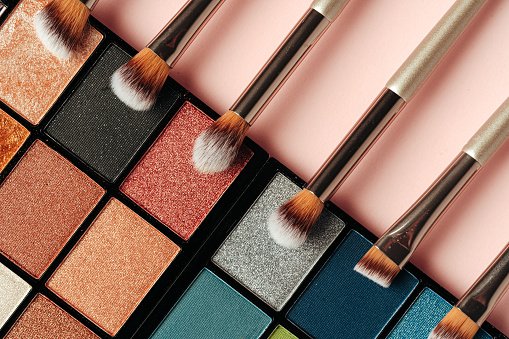Introduction.
The beauty industry in Nigeria is booming, and it’s no surprise why. With a growing population, rising beauty awareness, and increasing demand for skincare, makeup, and personal care products, the opportunities for starting a cosmetic business are endless.
But let’s face it—starting a cosmetic business can feel overwhelming at first. Where do you begin? How do you navigate the legal and business landscape? And what’s the best way to stand out in such a competitive market?
If you’ve been considering diving into this space but feel stuck or unsure, this guide has got you covered.
Let’s break it all down step by step.
Why Start a Cosmetic Business in Nigeria?
Nigeria has one of the largest and fastest-growing beauty markets in Africa. According to Statista, the Nigerian beauty and personal care market was valued at around $3.2 billion in 2020 and is projected to grow significantly in the coming years. People are willing to spend on beauty products, from organic skincare to high-end makeup brands.
This growing interest is fueled by a younger population, social media influence, and increasing awareness of self-care.
It’s a market with a lot of room for creativity and innovation, so if you’ve got a passion for beauty, you’re already on the right track.
How Do I Start a Your Cosmetic Business?
Here’s how you can get started:
1. Decide What Type of Cosmetic Business You Want to Start
There are different ways to enter the cosmetic industry. You can:
- Manufacture your products: This involves creating unique formulas for skincare, makeup, or haircare products.
- Distribute or resell existing brands: Partner with well-known cosmetic brands to sell their products locally.
- Offer beauty services: Think of makeup artistry, facials, or spa treatments alongside selling products.
Start by identifying your area of interest. What excites you the most? What gaps do you see in the market?
2. Conduct Market Research
Understand your target audience. Are you catering to young professionals, teenagers, or older women?
Knowing your audience helps you create products or stock items that appeal to them. Research your competitors, too. What are they doing well? What can you do differently?
For example:
- Organic and natural skincare products are gaining popularity.
- Affordable but high-quality makeup appeals to younger buyers.
3. Write a Business Plan
Your business plan doesn’t have to be complicated. It should cover:
- Your mission: What do you want your business to achieve?
- Products or services: What will you sell or offer?
- Target market: Who will buy from you?
- Marketing strategy: How will you reach your audience?
- Budget and finances: How much do you need to start, and where will the money come from?
A good plan acts as a roadmap and helps you stay focused.
4. Register Your Business
In Nigeria, registering your business is essential. You can register a business name through the Corporate Affairs Commission (CAC). Here’s what you need to do:
- Visit the CAC portal (cac.gov.ng) to check if your desired business name is available.
- Apply for registration.
- Pay the required fee and provide necessary documents, such as your ID and address details.
Once registered, you’ll receive a certificate of incorporation, which is important for opening a business bank account and gaining customer trust.
5. Get the Necessary Licenses
If you’re manufacturing or importing cosmetic products, you’ll need approval from the National Agency for Food and Drug Administration and Control (NAFDAC). This ensures your products meet safety standards.
For NAFDAC registration, you’ll need:
- Product samples
- Detailed product formulation
- Evidence of manufacturing facilities (or a partnership with a manufacturer)
It might seem tedious, but these steps are necessary to build credibility.
6. Create a Brand Identity
Your brand is more than a name or logo—it’s how people see your business. Think about:
- Brand name: Choose something easy to remember and unique.
- Packaging: Attractive packaging can set you apart.
- Social media presence: Platforms like Instagram and TikTok are great for showcasing products and engaging with customers.
7. Source Your Products or Ingredients
If you’re making your products, work with reliable suppliers to get high-quality ingredients. For resellers, build relationships with trusted distributors or import products from international brands.
Ensure you understand your supply chain so you can keep costs low without compromising quality.
8. Set Up a Selling Platform
These days, you don’t need a physical store to start. Many cosmetic businesses succeed with just an online presence. Options include:
- Social media: Sell directly on Instagram, Facebook, or TikTok.
- E-commerce platforms: Use platforms like Jumia, Konga, or your own website.
- Physical stores: If you want to open a store, choose a location with high foot traffic, such as malls or busy markets.
9. Market Your Business
Marketing is everything in the beauty industry. Use these tips:
- Leverage influencers: Partner with beauty influencers who can promote your products.
- Run ads: Invest in targeted online ads to reach your audience.
- Engage with customers: Respond to questions and feedback quickly on social media.
10. Start Small and Scale Up
You don’t need to launch with a huge inventory. Start with a few products or services and expand based on demand. For instance, if your handmade lip balms become a hit, you can add more skincare products to your line.
FAQs
Q: Do I need a lot of money to start?
Not necessarily. You can start small with a few products or work as a distributor with minimal stock. However, budgeting is important to avoid overspending.
Q: How do I handle competition?
Focus on what makes your brand unique, like offering affordable prices, using natural ingredients, or having great customer service. Stay consistent and always listen to your customers.
Q: Can I run the business from home?
Yes, especially if you’re starting online or making your own products. Just ensure you comply with any local regulations.
Q: Is it better to manufacture or resell?
It depends on your skills and resources. Manufacturing gives you full control over your products, but reselling can be easier to start with less capital.
Final Thoughts
Starting a cosmetic business in Nigeria might seem challenging at first, but with the right plan and effort, it’s absolutely doable. The key is to stay passionate, understand your customers, and keep adapting to trends in the beauty market.
So, what’s stopping you from turning your beauty dreams into reality? What’s the first step you’ll take to kickstart your cosmetic business? Let me know!





GIPHY App Key not set. Please check settings